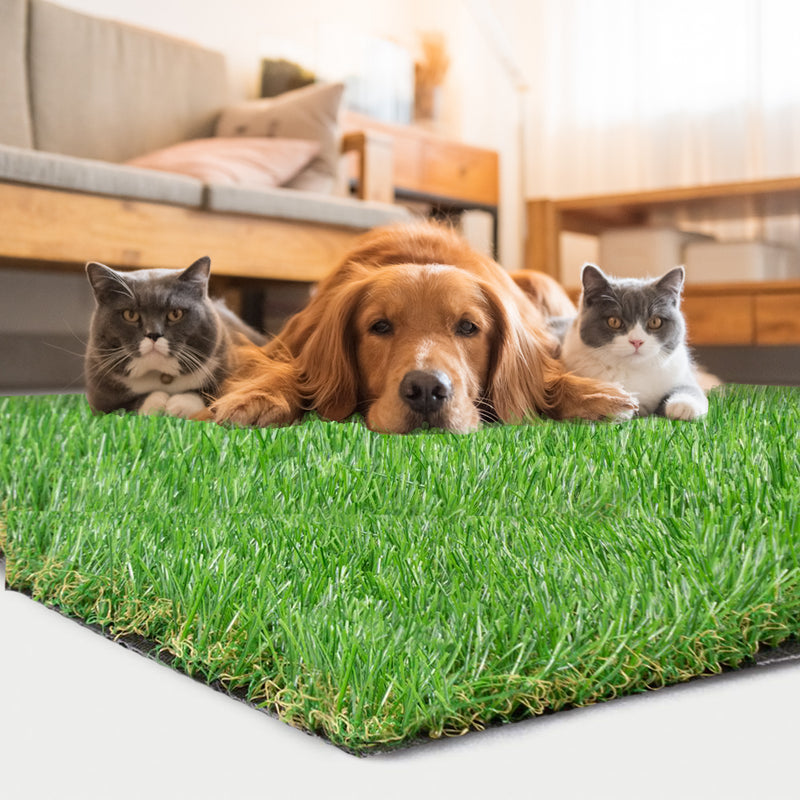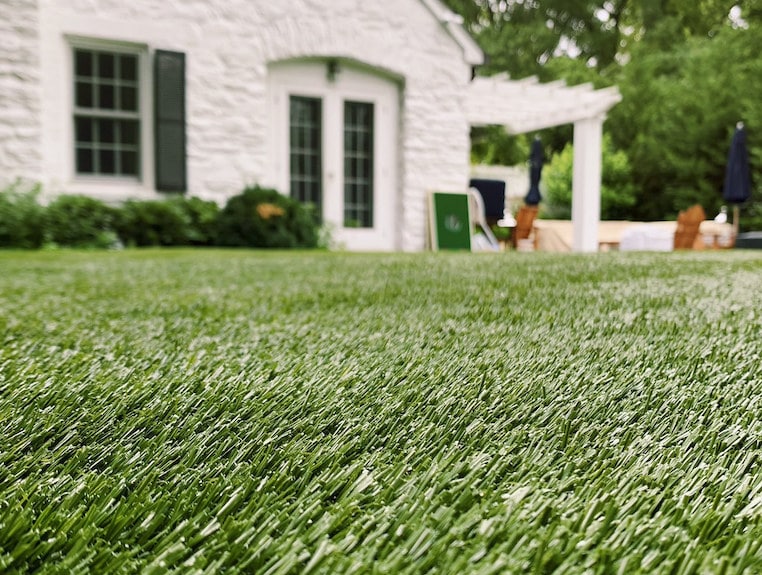Delve Into the Environmental Conveniences of Opting for Artificial Lawn Solutions
The fostering of synthetic lawn options offers a compelling chance to deal with pressing ecological obstacles. By considerably reducing water use and minimizing the application of unsafe chemicals, these alternatives not just promote lasting landscape design but likewise safeguard local ecosystems.
Water Conservation Conveniences
One of the most substantial advantages of synthetic turf is its capacity to conserve water. In comparison, fabricated lawn does not require watering, dramatically lowering the general demand for water resources.
By eliminating the demand for regular watering, man-made lawn adds to lasting landscape methods and aids minimize the ecological impact of extreme water intake. The preservation of water expands to the reduction of overflow, which can lead to dirt disintegration and waterway air pollution.
In addition, the installation of man-made turf enables districts and property owners to assign water sources extra effectively, concentrating on essential usages such as alcohol consumption water and agriculture. The change in the direction of synthetic grass not just promotes responsible water usage but also lines up with more comprehensive ecological objectives focused on preserving natural deposits.
As communities progressively prioritize sustainability, the water conservation benefits of synthetic grass provide a compelling case for its adoption in property and industrial landscaping projects.
Reduced Chemical Use
The change to artificial turf considerably decreases the dependence on chemical therapies generally utilized in natural yard maintenance. Conventional turf monitoring usually includes the application of herbicides, pesticides, and plant foods to advertise growth and control insects. These chemicals can posture dangers to human health, neighborhood wildlife, and the atmosphere, contributing to dirt and water contamination.
In contrast, man-made lawn eliminates the need for these harmful compounds. By decreasing the release of artificial substances right into the ecosystem, artificial grass advertises much healthier dirt and water systems.
Additionally, the lack of chemical runoff connected with synthetic turf setups aids secure neighborhood waterways from contamination, sustaining water life and maintaining biodiversity. Arizona turf. As communities progressively prioritize sustainable practices, selecting fabricated lawn offers a viable service that lines up with environmental conservation objectives. Via this change, homeowner can take pleasure in lush green rooms without endangering environmental health and wellness, leading the way for a more lasting future
Reduced Carbon Footprint

In addition, the installment of synthetic grass can result in considerable water preservation. All-natural grass require significant quantities of water for watering, which not just adds to the carbon footprint connected with water removal and treatment yet also stress neighborhood water resources. On the other hand, synthetic grass needs very little maintenance, needing no watering, therefore dramatically decreasing water usage and its connected power prices.
Additionally, the durability of fabricated lawn contributes to its lower carbon influence. With a life-span of up to 15 years or more, the demand for constant replacements is diminished, resulting in less waste and lower energy intake in manufacturing and taking care of standard lawn options. Overall, man-made lawn offers a sustainable option for environmentally aware landscape design.
Habitat Preservation
Habitat conservation is a crucial consideration in the argument over landscape design options, especially when contrasting synthetic grass to natural grass. All-natural yard yards typically require comprehensive maintenance, consisting of making use of fertilizers, herbicides, and chemicals, which can detrimentally affect regional ecosystems. These chemicals can leach into the dirt and waterways, harming indigenous flora and fauna and disrupting regional habitats.
On the other hand, synthetic grass presents a chance to reduce the ecological footprint of landscape design. By choosing artificial turf, house owners can reduce the disturbance of natural habitats connected with conventional grass care methods. Artificial grass eliminates the requirement for harmful chemicals, thus safeguarding close-by wild animals and maintaining the honesty of bordering environments. Furthermore, the setup of synthetic grass can bring about the conversion of former turf areas right into more biodiverse landscapes, such as pollinator gardens or native plant areas, which can support regional wildlife.
Ultimately, the transition to synthetic grass not just preserves water and reduces maintenance initiatives yet additionally fosters a more unified partnership between human activities and the native environment, advertising habitat conservation in the procedure.
Long-Term Sustainability
Lasting sustainability is a critical variable in evaluating the advantages of synthetic grass over go to this site conventional grass lawns. One of one of the most considerable benefits of synthetic grass is its durability; it can last approximately 15-20 years with minimal maintenance, whereas all-natural lawn requires constant reseeding and replacement. This durability reduces the demand for continuous sources, such as water, fertilizers, and pesticides, which are crucial for preserving a healthy and balanced yard yard.
Additionally, synthetic grass adds to a decrease in carbon emissions connected with lawn care equipment. Typical yards usually need gas-powered mowers, leaners, and blowers, all of which add to air contamination. Turf installation phoenix az. On the other hand, artificial turf eliminates the requirement for such tools, promoting a cleaner setting
Additionally, the production of man-made lawn increasingly uses recycled materials, improving its sustainability account. As suppliers adopt environmentally friendly methods, the ecological impact of synthetic grass remains to lessen.

Verdict
The adoption of synthetic grass solutions presents significant environmental benefits, including substantial water preservation, decreased reliance on harmful chemicals, and a lower carbon impact. Artificial turf help in maintaining all-natural environments by decreasing land disruption and promoting long-term sustainability via the usage of long lasting materials. Collectively, these variables highlight the potential of synthetic grass to add positively to environmental health and wellness and provide a practical option to traditional landscape design methods in a progressively resource-conscious world.
In contrast, artificial turf does not require watering, substantially decreasing the overall need for water resources. By minimizing the launch of artificial substances into the ecosystem, fabricated lawn advertises healthier dirt official website and water systems.
Additionally, the installment of synthetic grass can result in considerable water conservation. In comparison, synthetic lawn needs marginal maintenance, needing no watering, consequently substantially minimizing water usage and its connected power expenses.
